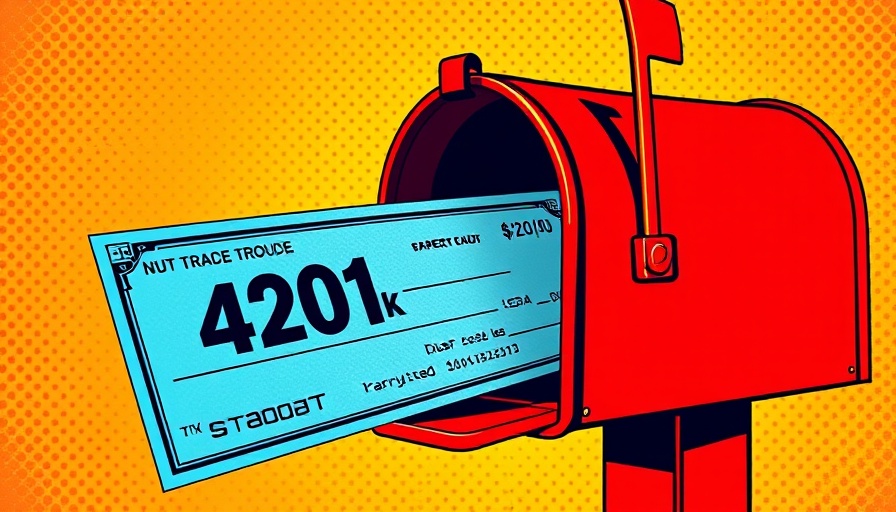
Why Paper Checks Are Still Used Amid Modern Payment Options
With the rise of digital payments, including credit cards, direct deposits, and platforms like Venmo, the reliance on paper checks often seems anachronistic. Yet, various industries continue to rely on paper checks, particularly in sensitive transactions like 401(k) rollovers. The harrowing experience of Dylan Handy, a New Yorker who lost his entire 401(k) savings, emphasizes the risks associated with checks. After his checks from Paychex were intercepted and fraudulently cashed, Handy took the multi-level payment system to court, sparking a debate on the ongoing use of checks in the retirement sector.
Deconstructing the 401(k) Rollover Vulnerability
The incident involving Handy raises significant concerns for employers offering retirement plans. Given that a substantial 43% of people have reported using paper checks for rollover processes, as cited by Times columnist Ron Lieber, it’s clear that traditional methods still dominate despite their associated risks. Employers must assess the third-party vendors they engage for administering retirement funds, ensuring they have robust systems in place to protect employees' investments.
Understanding the Fraud Risks
As Handy's story suggests, despite the inherent security vulnerabilities, checks remain a standard practice in various business contexts. According to Bharathi Ramavarjula from Xero, a diverse payment strategy allows small businesses to facilitate convenience while preparing for potential risks. However, checks can expose firms to fraud from first-time customers or others trying to exploit more vulnerable enterprises.
Tips for Safeguarding Your Business Transactions
When small businesses consider accepting paper checks, they should employ certain precautions:
- Prioritize Verification: Verify the payer’s identity and ensure all details on the check match correctly.
- Monitor Check Quality: Look for inconsistencies such as faded ink or unusual formatting, indicators that a check may not be legitimate.
- Avoid Risky Checks: Do not accept post-dated or third-party checks, which carry a higher risk.
- Maintain Records: Photocopy or scan checks before depositing them for future reference in case of disputes.
- Utilize Technology: Adopt remote deposit capture systems to expedite the process of checking and securing funds.
Historical Context and the Future of Payment Practices
The trend of continuing to allow checks in financial transactions may seem inexplicable, especially when technology offers secure alternatives. This resistance to change is similar to how many businesses clung to outdated processes in the past. Understanding the historical context can provide insights into why certain businesses have hesitated to fully transition to digital formats. Studies indicate businesses utilizing mobile payments or secure banking apps face lower fraud rates.
Insights for Employers and Consumers
For employers, investing in security measures not only protects their business but builds trust among employees. As the conversation around 401(k) plans evolves, they need to stay informed and proactive. Consumers must also ask why they've relied on checks in sensitive transactions, ensuring they question practices that could compromise their financial security.
Taking Action: Why It Matters Now
As the methods of financial transactions evolve, the risks cannot be ignored. Those who prioritize safety and adaptability will find themselves in a better position to avoid potential pitfalls. Understanding the implications of your payment choices today could mean the difference between financial security and loss tomorrow.
 Add Row
Add Row  Add
Add 




 Add Row
Add Row  Add
Add 

Write A Comment